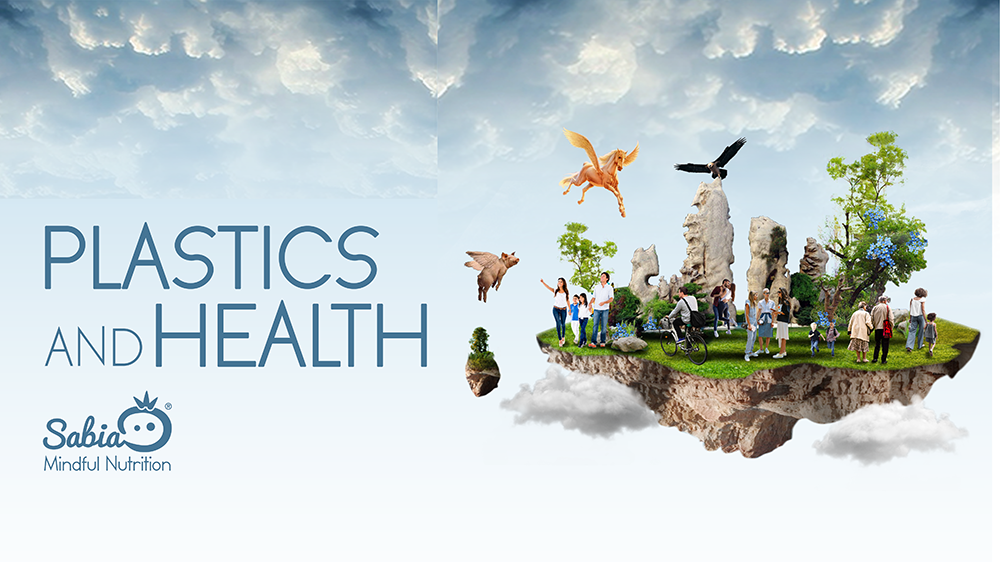Health, Lifestyle, Uncategorized
Plastics and Health: Safe Alternatives for Your Well-being and the Planet
In today’s world, plastic is ubiquitous, from food packaging to kitchen utensils. However, recent research has raised concerns about the potential health risks associated with the widespread use of plastics, especially when heating food. In this article, we’ll explore the potential dangers of plastic and how we can protect our health and the environment in the age of plastic.
The Hidden Danger in Your Kitchen
According to an article published by Harvard Health Publishing, “Studies have found that certain chemicals in plastic can leach out of the plastic and into the food and beverages we eat.” This revelation is alarming, considering how much we rely on plastic in our daily lives.
The problem is exacerbated when we expose plastic to heat. The same article warns that “This leaching can occur even faster and to a greater degree when plastic is exposed to heat.” This means that the simple act of heating your leftovers in a plastic container in the microwave could be increasing your exposure to potentially harmful chemicals.
Health Impacts: Beyond the Obvious
The chemicals that leach from plastics are not harmless. Harvard Health notes that “Some of these chemicals have been linked to health problems such as metabolic disorders (including obesity) and reduced fertility.” These findings suggest that the impact of plastics on our health could be deeper and more far-reaching than we initially thought.
Safe and Sustainable Alternatives
Given these risks, it’s crucial to seek safer alternatives for storing and heating our food. Some options include:
- Microwave-safe glass or ceramic containers
- Beeswax wraps as a substitute for plastic film
- Stainless steel bottles for beverages
- Compostable food packaging

The Compostable Packaging Revolution
The food industry is taking note of these concerns and adapting accordingly. An inspiring example is our health food company’s recent switch to fully compostable packaging. This innovation not only effectively protects food but also breaks down naturally, significantly reducing environmental impact and potential health risks associated with traditional plastics.
Compostable packaging offers multiple benefits:
- Food safety: It doesn’t release harmful chemicals into food.
- Sustainability: It decomposes completely, returning nutrients to the soil.
- Waste reduction: It helps decrease the amount of plastic ending up in landfills and oceans.
Steps Towards a Healthier and More Sustainable Lifestyle
Reducing our dependence on plastic is not only beneficial for our health but also for the environment. Here are some steps you can take:
- Avoid heating food in plastic containers
- Opt for reusable bags for shopping
- Choose products with compostable or biodegradable packaging
- Support companies that prioritize consumer health and environmental sustainability

The Role of Regulation and Research
As awareness about the risks of plastic grows, governments and health organizations are taking action. Many countries are implementing stricter regulations on the use of plastics in contact with food. Additionally, ongoing research is being conducted to better understand the long-term effects of exposure to plastic chemicals.
Practical Tips for Reducing Plastic Exposure
- Use glass or stainless steel containers for food storage
- Avoid plastics with recycling numbers 3, 6, and 7, which are more likely to release harmful chemicals
- Don’t reuse single-use plastic water bottles
- Opt for wooden or fabric toys for young children instead of plastic
The evidence suggests that plastic can pose a significant threat to our health and the environment. As informed consumers, we have the power to make choices that protect our well-being and that of the planet. By reducing our use of plastic and opting for safer alternatives, such as compostable packaging, we can mitigate the risks and contribute to a healthier and more sustainable future.
Change begins with small daily actions. Every time you choose a product with compostable packaging or avoid unnecessary plastics, you’re taking a step towards a cleaner and healthier world. Together, we can create a future where convenience doesn’t compromise our health or that of the planet.


